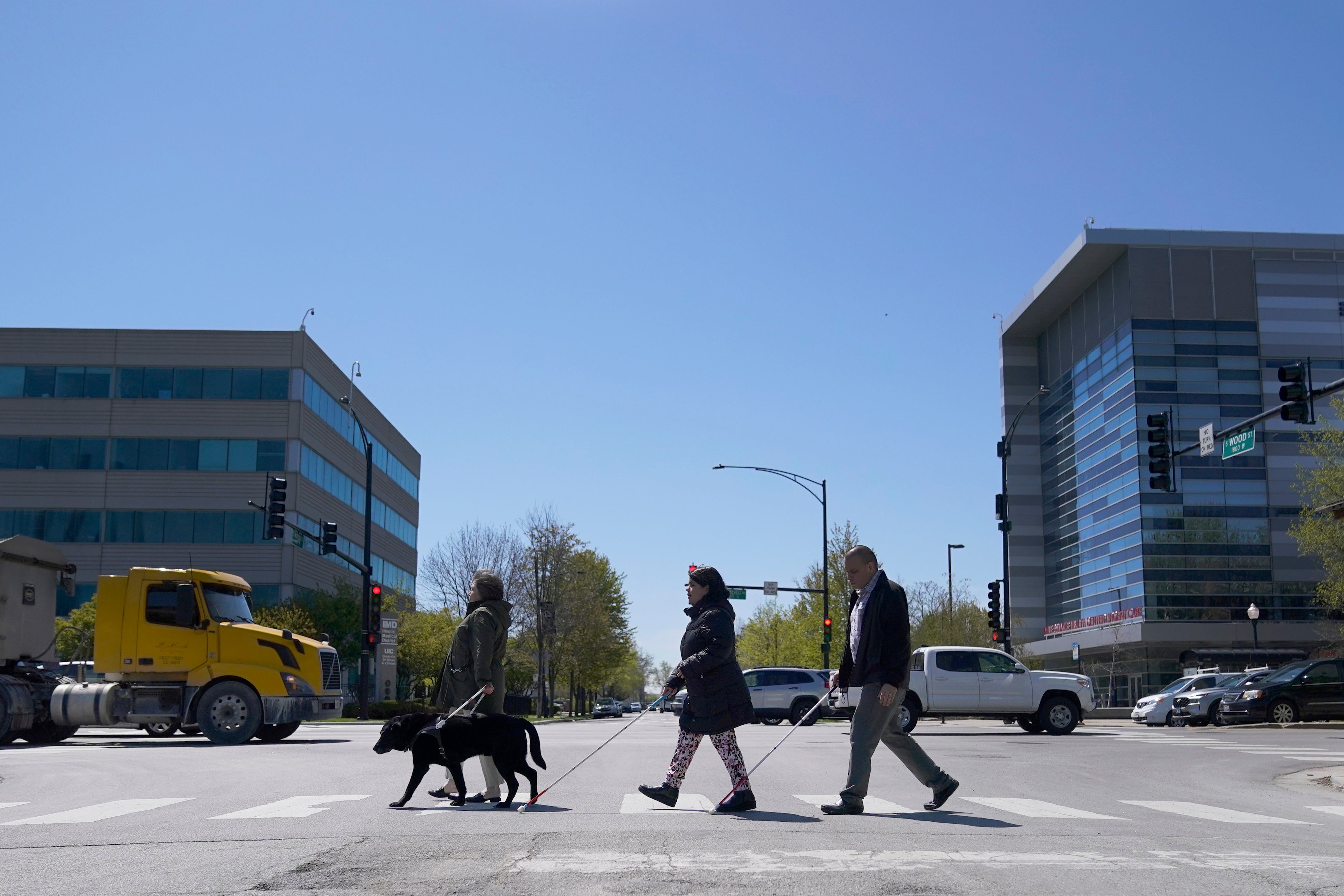Census Bureau pauses changing how it asks about disabilities following backlash
Facing growing backlash, the U.S. Census Bureau has paused plans to change how it asks people about disabilities in its most comprehensive survey

Your support helps us to tell the story
From reproductive rights to climate change to Big Tech, The Independent is on the ground when the story is developing. Whether it's investigating the financials of Elon Musk's pro-Trump PAC or producing our latest documentary, 'The A Word', which shines a light on the American women fighting for reproductive rights, we know how important it is to parse out the facts from the messaging.
At such a critical moment in US history, we need reporters on the ground. Your donation allows us to keep sending journalists to speak to both sides of the story.
The Independent is trusted by Americans across the entire political spectrum. And unlike many other quality news outlets, we choose not to lock Americans out of our reporting and analysis with paywalls. We believe quality journalism should be available to everyone, paid for by those who can afford it.
Your support makes all the difference.Facing growing backlash, the U.S. Census Bureau on Tuesday paused plans to change how it asks people about disabilities in its most comprehensive survey, a move that would have overhauled how disabilities are defined by the nation’s largest statistical agency.
Disability advocates had argued that the proposed changes would artificially reduce their numbers by more than 40%, limiting the ability of people with disabilities to get vital resources for housing, schools or program benefits. They also argued that they weren't properly consulted on such a major overhaul.
“Good news. Good news. Good news,” said Scott Landes, an associate professor of sociology at Syracuse University, who is visually impaired. “They got the message that we need to engage.”
The bureau plans to meet with advocates in the disability community and determine what changes to the questions are needed to better capture the range of disabilities while keeping the current questions about disability on the 2025 American Community Survey, said Census Bureau Director Robert Santos.
“We will continue our work with stakeholders and the public to better understand data needs on disability and assess which, if any, revisions are needed across the federal statistical system to better address those needs,” Santos said in a blog post.
The American Community Survey is the most comprehensive survey of American life, covering commuting times, internet access, family life, income, education levels, disabilities and military service, among other topics.
The existing questions ask respondents to answer “yes” or “no” if they have difficulty or “serious difficulty” seeing, even with glasses, or are blind; hearing, or are deaf; concentrating, remembering or making decisions because of a physical, mental or emotional condition; walking or climbing stairs; dressing or bathing; or performing everyday tasks because of a physical, mental or emotional condition. If the answer is ″yes,” they are counted as having a disability.
Under the proposed changes, which follow international standards, respondents would be allowed to answer most of the same questions with four choices: “no difficulty,” “some difficulty,” “a lot of difficulty” and “cannot do at all.” A person would be counted as disabled if they answered “cannot do at all” or “a lot of difficulty” for any task or function.
In a test run, the percentage of respondents who were defined as having a disability went from 13.9% using the current questions to 8.1% under the proposed changes. When the definition was expanded to also include “some difficulty,” it grew to 31.7%.
___
Follow Mike Schneider on X, formerly known as Twitter: @MikeSchneiderAP.